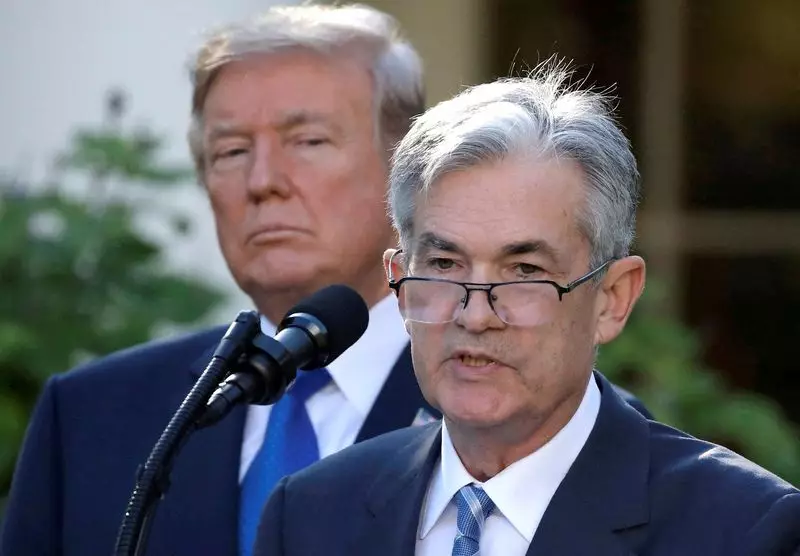In a recent interview, U.S. President-elect Donald Trump made headlines as he revealed his intention to retain Federal Reserve Chair Jerome Powell for the foreseeable future. On NBC News’ “Meet the Press,” Trump expressed uncertainty about the need to disrupt the current leadership at the Federal Reserve, stating, “No, I don’t think so. I don’t see it.” This statement marks a significant shift from Trump’s previous interactions with Powell during his first term, characterized by tension and vocal critiques of the central bank president’s monetary policies.
Trump’s relationship with Powell has been fraught since he appointed him in 2018. Initially seen as a Republican ally, Powell quickly became a target for Trump’s displeasure, particularly regarding interest rate hikes. By re-entering the political arena, Trump appears to have softened his combative rhetoric towards Powell, leading to speculation about whether such a strategic pivot signifies an evolving approach to economic policy.
As Trump’s administration sets its sights on the economic challenges ahead, the looming question of inflation persists. Trump’s campaign promise to reduce borrowing costs for American households suggests that any friction with the Fed might not be entirely behind him. The president-elect’s ideas about implementing broad tariffs could exacerbate inflationary pressures, contradicting Powell’s efforts to maintain monetary stability.
Although Powell’s term extends until 2026, the Federal Reserve’s independence remains a contentious issue. This independence is designed to prevent political influence over critical decisions that affect the economy. Trump’s previous comments and actions, which indicated a desire to intervene in the Fed’s operations, raised alarms about a possible undermining of this independence. Historical precedent shows that most presidents have traditionally avoided public commentary on the Fed’s policies, opting instead to respect its autonomy.
The context of Trump’s relationship with the Fed cannot be overlooked. His inclination to challenge norms marks a stark contrast to previous administrations. The norm has generally been to allow the Federal Reserve the latitude to function without presidential interference. Trump diverged from this tradition, openly criticizing Powell and even contemplating his dismissal. Such behavior posed questions about the checks and balances essential to U.S. governance.
The upcoming Federal Reserve meetings are also critical, with traders predicting a cut to interest rates in December. Such a reduction could help to stabilize a cooling labor market but risks further straining the relationship between the executive branch and the Fed. As Trump revitalizes his economic agenda, the implications of monetary policy will weigh heavily on his presidency.
If Trump does maintain a cooperative relationship with Powell, it could signal a more stable economic environment, allowing the Fed to implement necessary adjustments without direct interference. However, the potential for clashing interests remains. Trump’s focus on reducing mortgage rates is inherently at odds with the Fed’s mission to manage inflation—an ongoing tug-of-war between economic growth and price stability.
The nuances surrounding Powell’s role and Trump’s influence may become more pronounced as economic conditions evolve. If inflation surges or the economic recovery stalls, pressure may mount on the Fed to act decisively, potentially prompting Trump to reevaluate his stance.
In essence, Trump faces a complex landscape regarding monetary policy as he prepares for his next term. Whether he can reconcile his economic ambitions with the Federal Reserve’s commitments to independence remains to be seen. The balancing act between inflating economic growth and maintaining fiscal restraint will be fraught with challenges, and any sign of discord between the White House and the Fed may significantly impact the financial markets.
As the nation anticipates a potentially rocky economic road ahead, the early indicators of Trump’s relations with Powell will play a crucial role in shaping both immediate financial outcomes and long-term fiscal health in the United States. Establishing a stable relationship could bolster confidence among investors and citizens alike, but persistent tensions could lead to an unpredictable monetary future.

